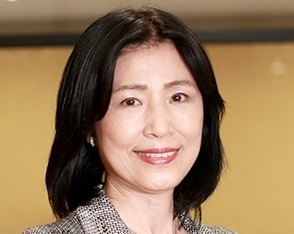-CEFR/PROGOS Dissemination Part One- Sense of Crisis for Japan
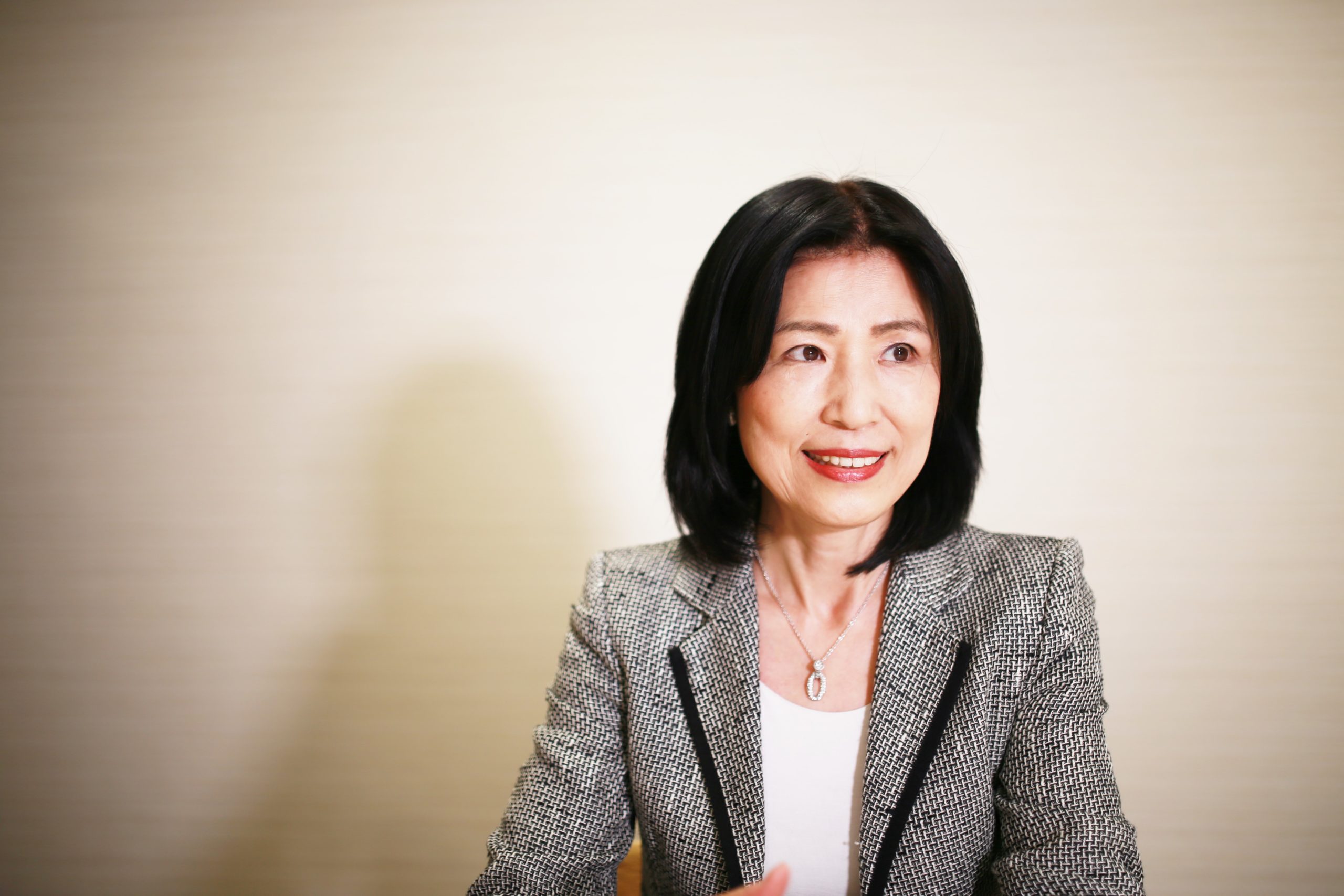
To those of you who are reading this article, have you ever had any thoughts or beliefs like this?
- You can work with foreigners using an interpreter or automatic translation even if you can’t speak English.
- English is not relevant to my current tasks, and there are only a few people who need English skills at my work.
- Since Japan is not an English-speaking country, it is only natural that people cannot use English well.
- Since Japanese people are diligent, and have good reading and writing skills, they should be able to communicate well in English once they go abroad. It’s just a matter of whether we are used to it or not.
That, however is not the case!
Though knowing these beliefs only too well, Ms. Ando realized the stark “Reality” that Japan was being left behind!
After graduating from university, Ms. Ando worked for a major think-tank, a foreign pharmaceutical company, and then went to the U.S. She completed a MA at the University of Chicago and a MBA at New York University. Additionally, she worked at the New York branch of a Japanese securities company.
Upon returning to Japan, she worked at an international education company, an organization which provided English language tests, and an e-learning business company. Through her career, she experienced numerous business situations, negotiations, and projects with foreigners.
However, during these years, she attended several international conferences, where she witnessed:
Japanese do not really have a presence.
When she noticed some Japanese, they were not speakers but mostly in the audience. Moreover, they clumped together in groups and depended on their interpretation and translation services. The only people doing that were the Japanese. Ms. Ando felt a strong sense of crisis, which in turn changed into her mission:
I have to do something about it.
When visiting universities and research institutes abroad that provide some of the world’s most cutting-edge IT and education management, she found that there were a great many Asian students, but very few Japanese. These international students planned their careers on a global scale.
On the other hand, when talented people in the world try to find the best place to succeed, do they find it attractive to live in a country where they cannot study or work unless they study Japanese fully? This manner of thinking seems to correspond with Japan’s declining competitiveness in the world. Unless we change this situation, Japan will be left behind. Her heart began to beat uncontrollably, which signaled the start of her challenge…
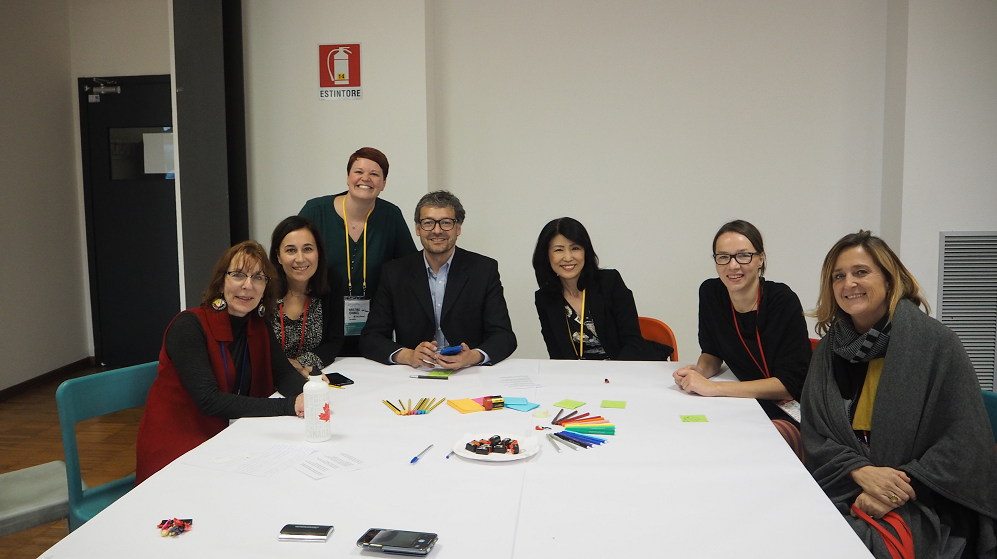
While job-based employment has been introduced in Japan recently, the competition for skill-based employment is already intensifying in the global labor market.* In order for Japanese companies to survive the global competition, it is essential to have world-class human resources to work on the front line. This is why Japanese companies provide corporate training and invest in human resources to develop global talent. Alternatively, if companies cannot internally develop such human resources in time, they may consider that hiring externally is an easier solution.
Japanese companies are now catching up with their global competitors in the workplace digitalization. Online business communication has now become the new norm, which means physical distance is no longer an impediment. Apart from the time difference, it is easy for everybody to connect online with people from different countries.
In Japan, it will become more common that team members will be selected based on their skills, regardless of the area they were born or live, and they will work together remotely from multiple bases around the world. Then, leaders need to have the capability to remotely lead multinational staff who have never met face-to-face. Therefore it is obvious that proficient English communication skills are critical in this situation.
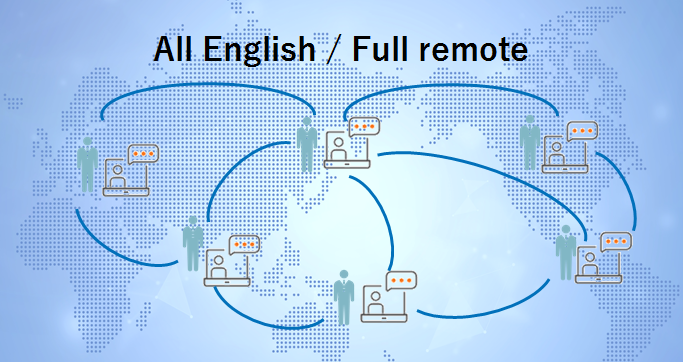
In fact, English is just the entry point for conducting global business. Global communication is not just about replacing Japanese with English. Cultural awareness, consideration for different business customs, insight into diverse values and other people’s thoughts, and behaviors to gain the respect and trust – all of these skills are necessary for global business communication. It is not just a matter of linguistic training. These skills can be gained by thinking and expressing yourself in English. One cannot use interpreters and translation services in place of these skills.
Supposing that you possesses high business skills except for English, you might not be evaluated as a global company if you cannot perform well due the lack of English skills. In other words, if only you can break the English language barrier, you will have opportunities across many countries. Even though “English is not relevant to your current job, imagine how exciting your life would be if you do the same job with colleagues from different countries. Everyone can demonstrate his/her abilities anywhere in the world. That is the map that Ms. Ando wants to draw for the future.
According to the Global English Competence Index Ranking 2020:
…Japan was ranked 55th* out of 100 countries.**
…Among the G7 countries, Japan ranks the lowest.
…Among the G20 countries, only a few countries were ranked lower than Japan.
Based on the 2019 report of test takers by another testing group, Japan was ranked 18th out of 19 countries in English speaking skills and the lowest in writing skills among the 19 countries tested. In skills of listening and reading combined, Japan was ranked 44th out of 49 countries (2018 report).*** As the preceding data suggest, the statement that “Japan is not an English-speaking country” cannot be used as an excuse anymore for “being unable to master English.” Many other Asian countries, including China and Korea, have higher English abilities than Japan.
Where does this difference come from?
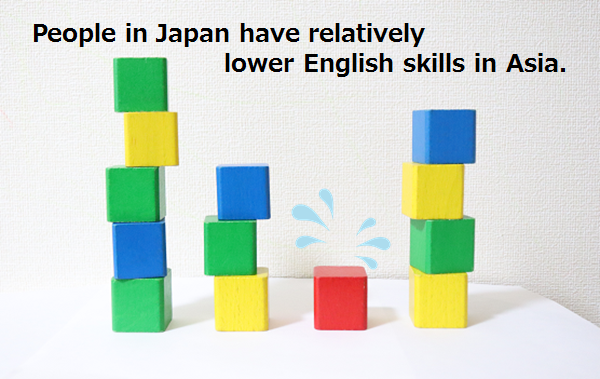
Speaking in English is different from reading and writing. You can take time to read and write in advance, but speaking is always spontaneous. One needs to listen and understand unexpected questions correctly, and create an answer instantly in your mind to express your opinions correctly. It is not simply the case that “You should just talk because you can read and write.”
Japanese spend a considerable amount of time and money on English learning. However, they tend to focus on reading and listening.
- Do they spend enough time learning and speaking in English, which requires instantaneous responses?
- How to create “speaking” opportunities and to improve skills efficiently by using data.
That would be the key to revolutionize English education in Japan.” Her thoughts started to resonate with RareJob’s group vision “Chances for everyone, everywhere.” and “English Education 3.0.” Along with the synchronicity with the Group’s Vision, Ms. Ando also had another reason to choose RareJob for the next challenge.

To gain English speaking skills, it is essential to measure your current level and define your goal, then to find the best path to reach the goal. It’s an ironclad rule for professional business persons. However, in Japan, there was no common standard or foundation for the measurement of English speaking ability.
How can we define “English speaking ability”?
A common measurement of English speaking ability was needed, that can be used globally. That is where Ms. Ando and RareJob were in sync. It was CEFR (Common European Framework of Reference for Languages), a standardized framework of linguistic levels. RareJob. has developed educational materials and curriculum based on CEFR to assure the “quality” of English-language education, under the leadership of Mr. Shimomata, CQO of RareJob. Soon after, “PROGOS” was developed as a new product of “assessment,” which is indispensable for effective English learning. The combination of these two processes seems to be the shortest route to realize the future Ms. Ando envisioned. The challenge was then set in motion.
*https://www.weforum.org/whitepapers/strategies-for-the-new-economy-skills-as-the-currency-of-the-labour-market
– Skills here are broadly defined skills that include competencies and various abilities.
** https://www.efjapan.co.jp/epi/
*** https://www.ets.org/s/toeic/pdf/sw-report-on-test-takers-worldwide.pdf
https://www.ets.org/s/toeic/pdf/2018-report-on-test-takers-worldwide.pdf
– The ranking among test participants is not just a measure of the English language abilities of the country as a whole.

